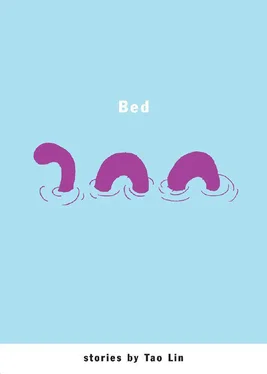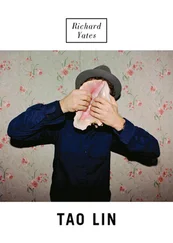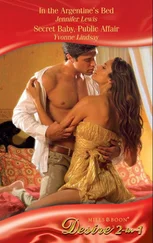They played “Gay Rude Boys Unite (Take Back the Dance Hall),” their anti-homophobia song, “Money,” their anti-money song, “Life is Pain,” their anti-breeding song, and “Suicide (A Better Way),” their pro-suicide song. Behind them, against the wall, was a large upside-down American flag with a pentagram drawn over it in black marker. In the corner was a little silvery “666.”
Colin and Dana stood to the side, back a little. Both had toilet paper packed in their ears. About ten songs in, Dana pushed Colin toward the middle and front. They were squished, were pushing forward and screaming the lyrics, and then Colin fell back into a circle-pit area, was okay for a while, moving quick and unharmed, but then was elbowed some place and smacked in the side by someone’s fat, hard body. He fell to the ground, which was cool and sticky. Kids picked him up, righted him, squared his shoulders. “My shoe,” Colin said. “My shoe fell off.” Kids began to search for his shoe. Then someone was slapping Colin’s cheek with his shoe and giving him his shoe. Colin saw some yellow and pushed up front. Stza was dancing something like a jig on stage, rapping, “incarcerate the youth of the next generation / and you get the high-fives at the police station.” Colin screamed the lyrics for a few songs. Leftover Crack played “Born to Die,” their usual closer— “I just can’t escape the lying / the moment we’re born, we’re dying” —and right after that the venue people turned on the lights. The house music was death metal. Colin found Dana and they stood around for a while. They used the bathroom. They wandered to the outside area, where a girl was interviewing Stza.
“Alright,” the girl was saying. She had bright orange hair and a large tape recorder, and was young, maybe in 8th grade. “So what’s the point of what you’re doing? What do you hope to gain?”
“Well, the point …” Stza said. “Actually we’ve pretty much done everything I had hoped to do. I wanted to be in a band, I wanted people to come to our shows. I didn’t have a lot of friends growing up and I wanted to meet people … see, I’m really shy, and I just can’t walk up to people and talk to them. I feel like a total jerk. But if kids come up to me and talk I can just talk back.”
“Is this the one important thing about the band … that you are going to extremes just because you’re making a point of free speech?”
“That’s one of the things,” Stza said. “But it’s not the only reason I say some things. I mean a lot of the things I say. I joke about a lot of things. But only half joking.”
“Is that why you have satanic imagery on your website? To be offensive?”
“Yeah, yeah. I mean, I’m an atheist. I like satanic art, I think it’s pretty … I’m not a Satanist, but if you read the Satanic Bible, a lot of it is just common sense, really. It’s not about hurting people, it’s about freedom and autonomy.”
One of the Polish women — the mom — was watching and had been moving closer and was now standing next to Stza. She asked about some beers that were sitting on a fence. “I wonder whose they are,” she said. There were three beers.
“Don’t know. You can have them,” Stza said.
“No; you should have them. They’re not mine.”
“Thank you,” Stza said.
“I wish someone would have them so they wouldn’t just be sitting there.”
“I’m sure someone will have them,” Stza said.
“Okay. Goodbye.” She turned to leave.
“Goodbye,” Stza said. “Well, you know, I eat out of the garbage, so …”
The polish woman turned back around. “What?” she said.
“I eat out of the garbage, so it doesn’t matter,” Stza said. “A lot of kids do, so they’ll drink the beers.”
“I don’t think they’re garbage, I think they’re sealed cans, just over there — look.”
“I’ll go check it out if it makes you happy,” Stza said.
“Just chuck them over the fence into that garden.”
“No! That’s wrong,” Stza said. “I don’t believe in littering. This is such a pretty place.”
“But someone might use them to throw at people’s windows.”
“They’re empty aluminum cans, that’s not going to break a window. I know these things.”
“He’s too smart for me,” the woman said to Colin and Dana. She smiled at Colin. “Oh,” Colin said, and looked away. Dana was holding his hand, he saw. “Will you put them in the bin for me then?” the Polish woman said. “They worry me.”
“Alright,” Stza said. “When we go back we have to go back that way — so we will.” He looked around. The little girl with the orange hair was gone. She had vanished.
“Thanks,” the woman said, “you’re an angel.”
“Thank you. An angel of death.”
Outside the venue, the sky was a distinct brown. Kids pointed at it. “What the fuck is that?” someone said. “It’s a piece of doo-doo,” someone screamed. There were clouds but those were brown too. A group of kids began to chant, “Don’t dis the sky, don’t dis the sky.” No one wanted to go home. Everyone loitered in the street, kicked at snow, talked shit about Good Charlotte. Colin walked around a little and soon couldn’t find Dana. He stood in one place, looking and shivering, feeling an unpleasant and comprehensive longing for tonight; it was a thousand years later and Colin was thinking back, remembering — regretting everything. But he would not be alive in one thousand years, he knew. He would be alone in a vast and unimaginable place. He felt a little confused. He saw Leftover Crack’s bassist running away, sprinting down the block, slowing, turning a corner. Then a girl was asking Colin his name. “Colin,” Colin said. “Hi,” the girl said. She had round and vapid eyes and a very thin, silver hoop in her nose. “I’m Maura. Join me, Frank, Donnie in a Chinese dinner. We’re going to Manhattan Chinatown. You’re invited.”
Dana walked up.
Maura introduced herself again. They talked briefly about a building across the street, then buildings in general. What if they got so tall that they broke off into outer space? “You two are together,” Maura said after a while. “You aren’t alone and feeling bad … feeling alone,” she said to Colin. She gazed at them. “Things haven’t changed. You’re both invited.”
The moon was fuzzy and it looked like it had snowed there too, or else it was a large piece of snow, falling slowly, carefully, in an orbit. It was the moon, and could do what it wanted.
“You two aren’t very curious,” Maura said. “Not a good sign. Hmm. Look. Frank and Donnie.” She stepped aside, pointed behind her. Frank and Donnie were standing there, small and indistinct, down two or three blocks.
At the Chinese restaurant, Maura had an idea that everyone should spend all their money tonight; they’d found a homeless person on the train and he was here with them too — a short, bearded man who hadn’t said anything. They put their money together, a little over a hundred dollars. Maura brought the cash to the large Chinese woman in charge of the place and asked her to order for them, and keep twenty percent for tip. A waiter appeared and engaged the Chinese woman in conversation without looking at her.
Dana’s cell phone rang. It was her boyfriend and she said that she was going to go now, and stood up.
Colin wasn’t thinking that he wouldn’t ever see Dana again after tonight. He didn’t think of that until after Dana had left. It was later, now, that Colin realized: when Dana was standing by the table, a few minutes ago, looking, she was waiting for him to stand up, so that they could say goodbye or something, exchange phone numbers maybe, but Colin had just sat there, without moving — had been thinking about Dana’s film, about asking her where to meet tomorrow, if she was just being nice; then about how good and mysterious it was that Dana had held his hand earlier — and then she had come over, leaned down, hugged him, and left.
Читать дальше












